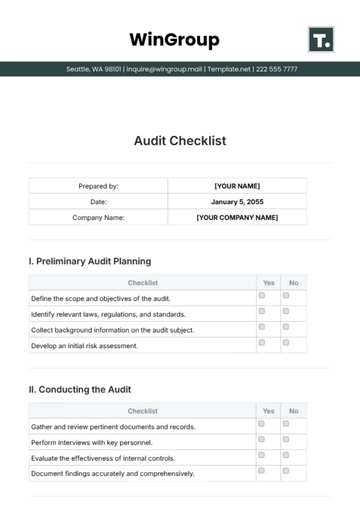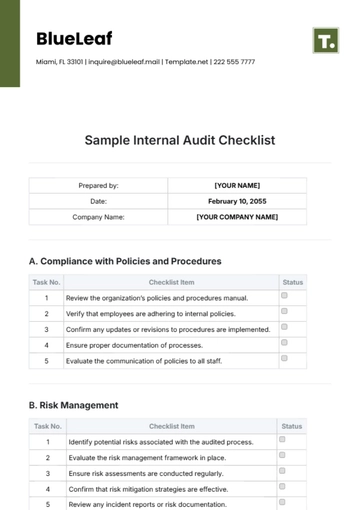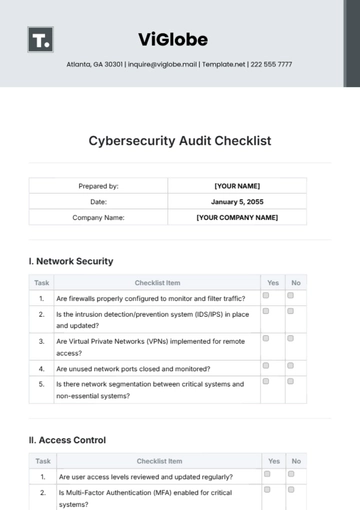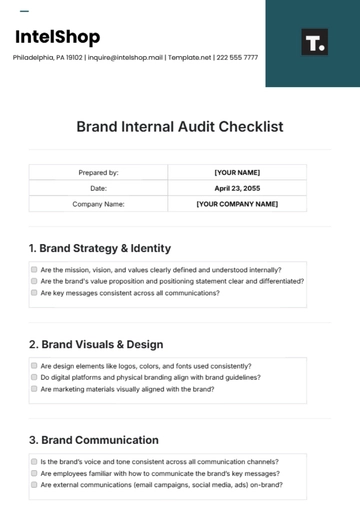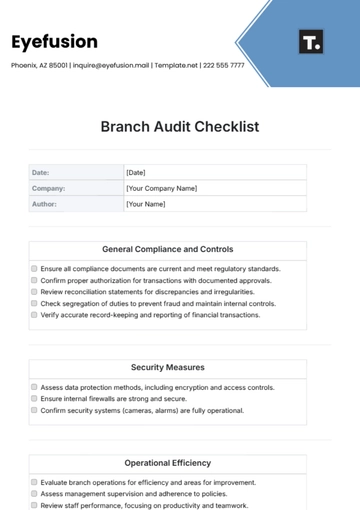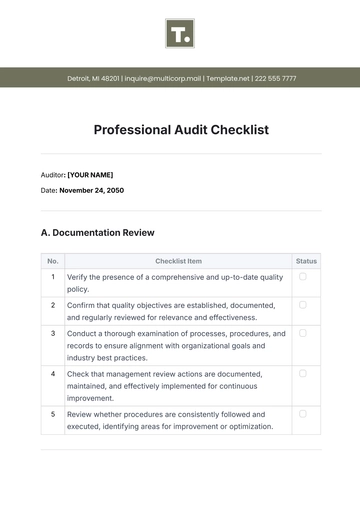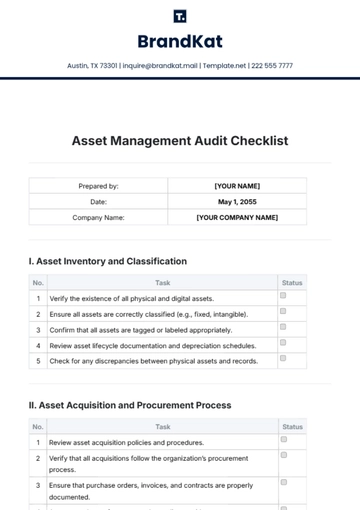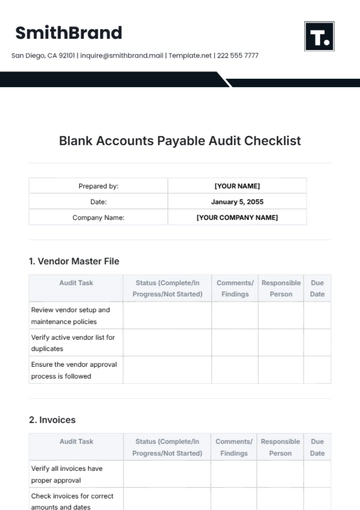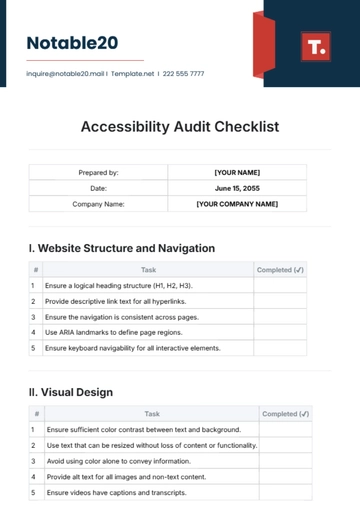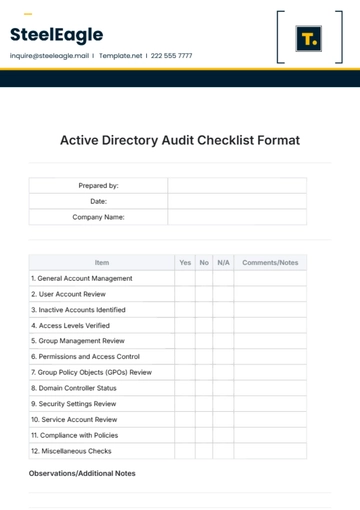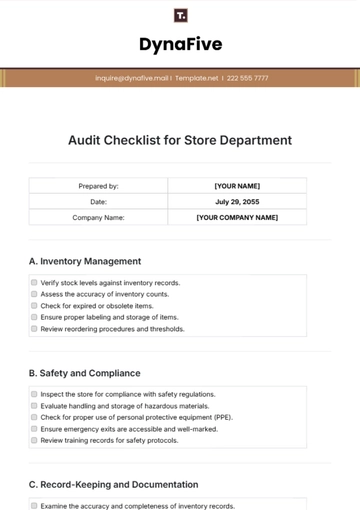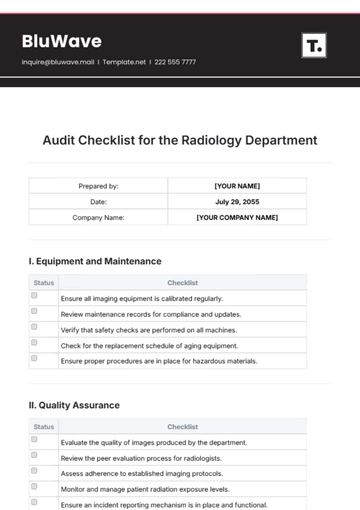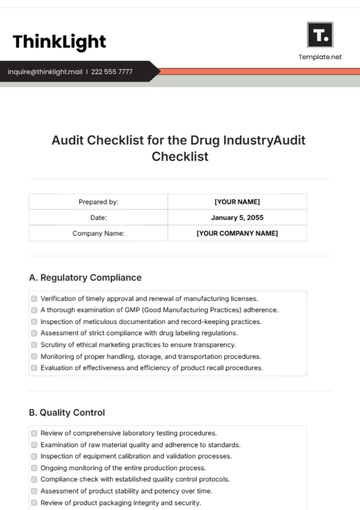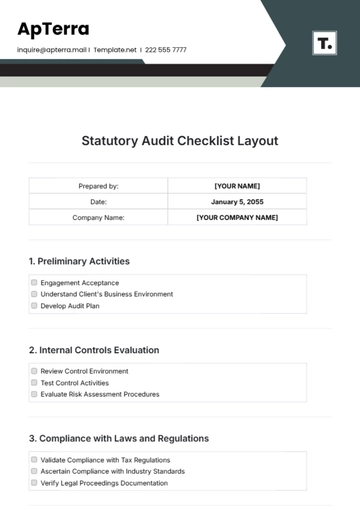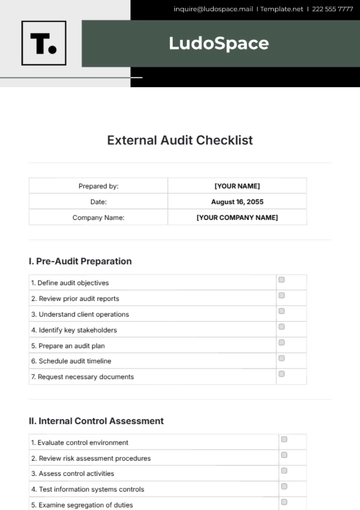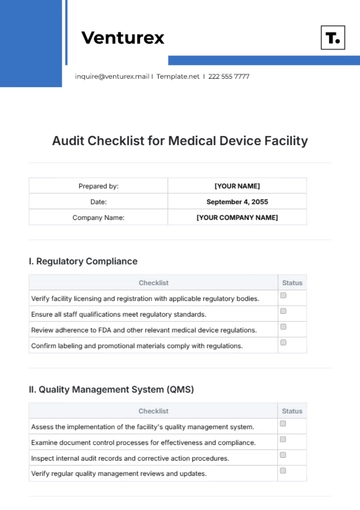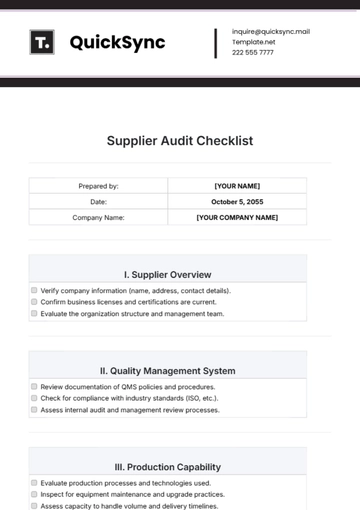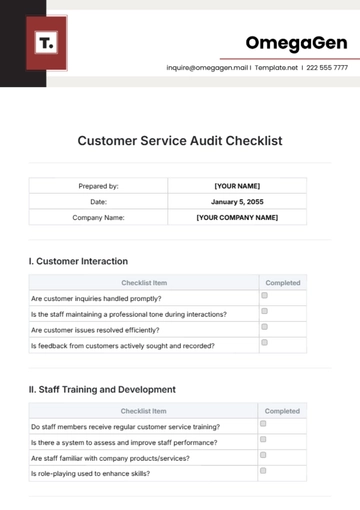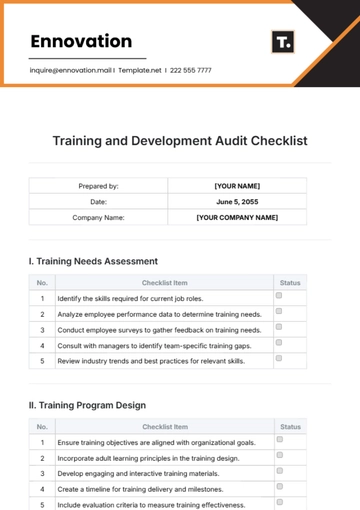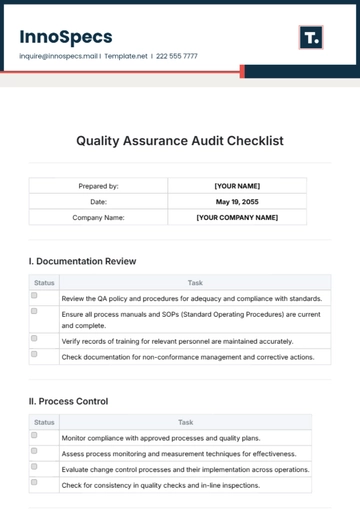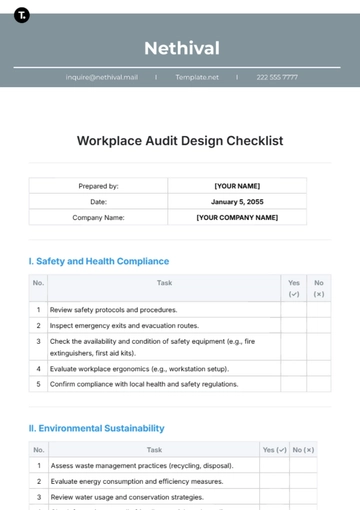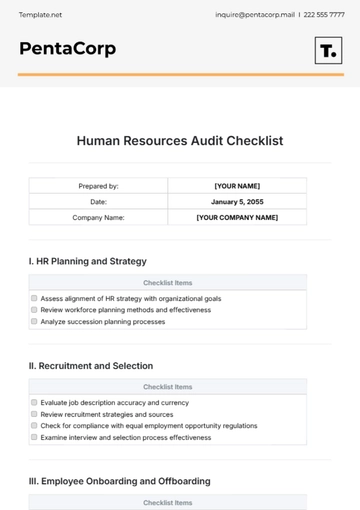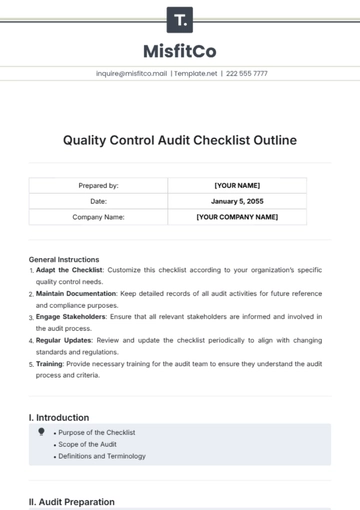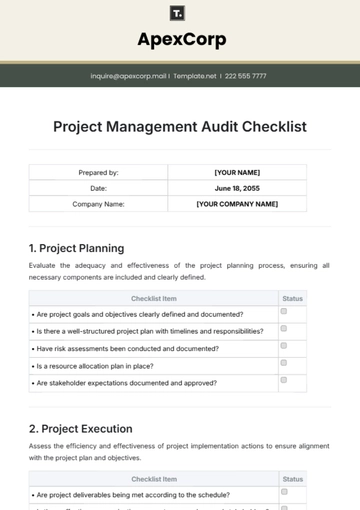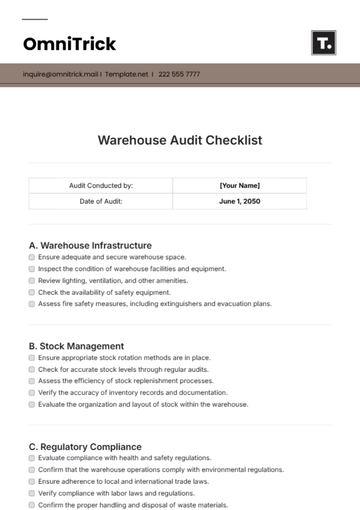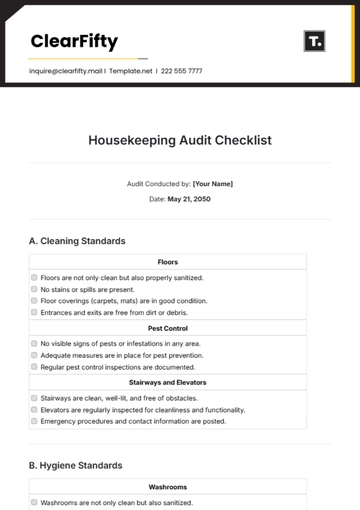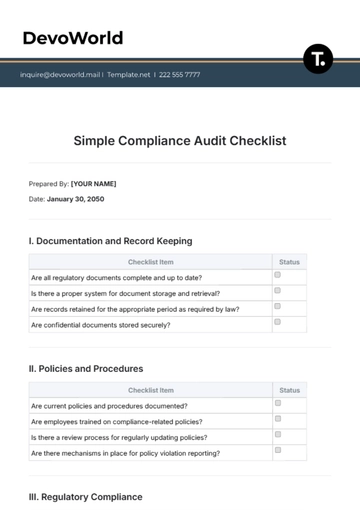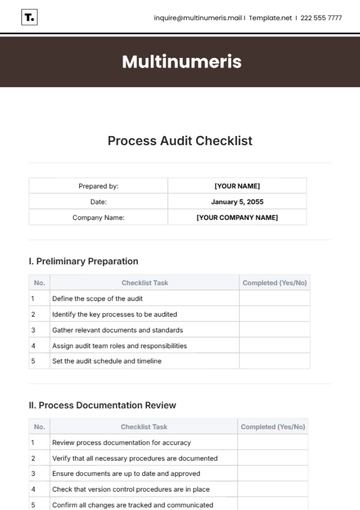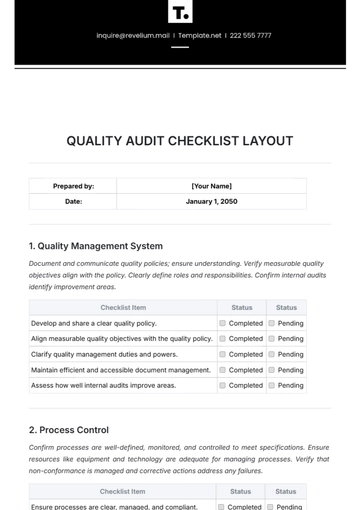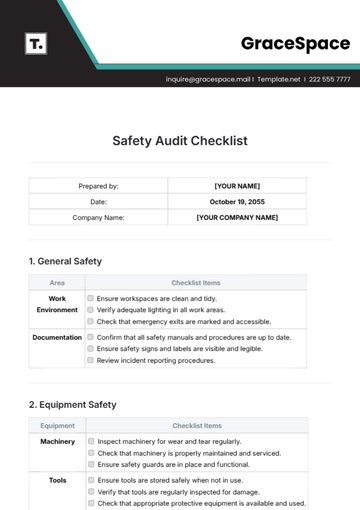Free Supplier Audit Checklist
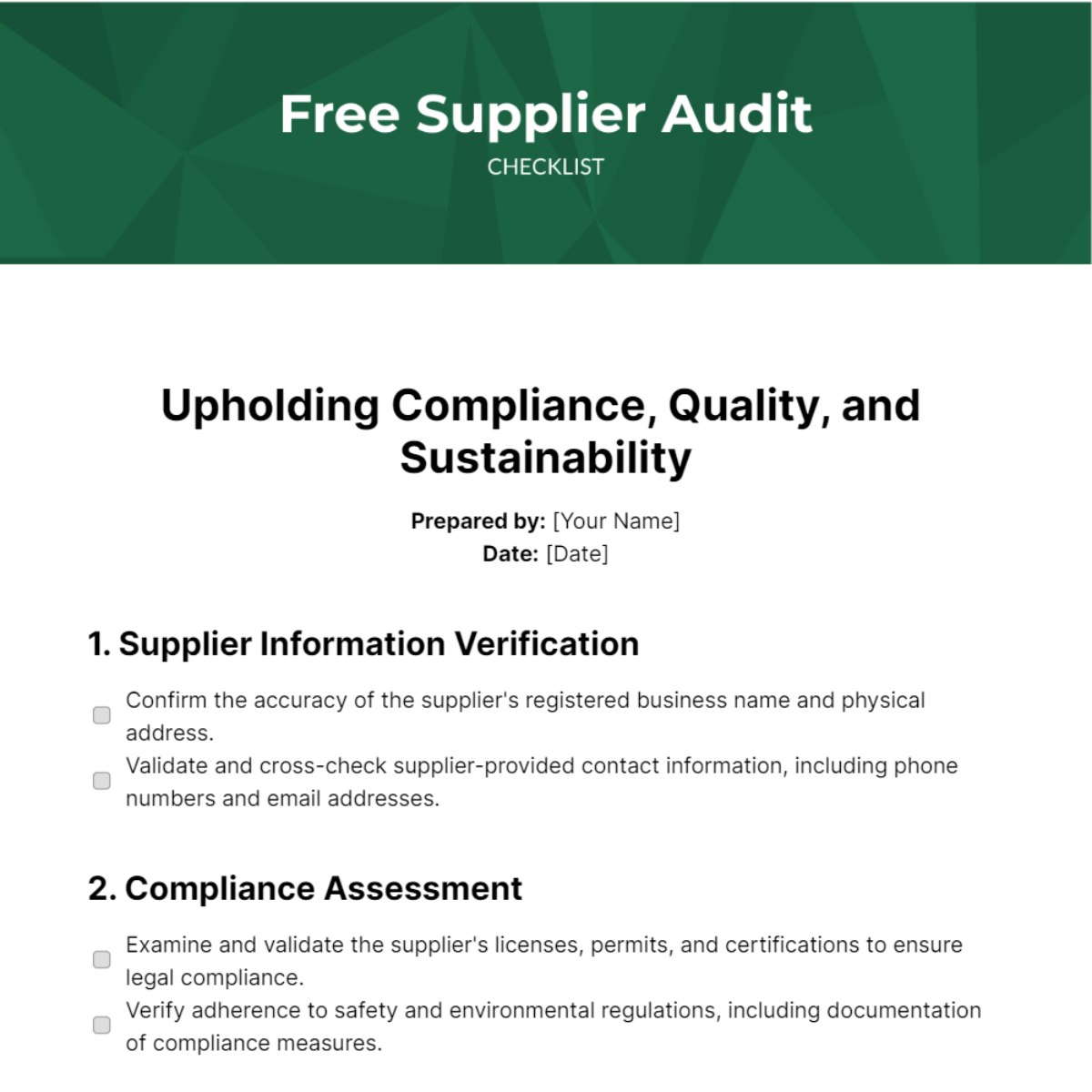
Prepared by: [Your Name]
Date: [Date]
1. Supplier Information Verification
Confirm the accuracy of the supplier's registered business name and physical address.
Validate and cross-check supplier-provided contact information, including phone numbers and email addresses.
2. Compliance Assessment
Examine and validate the supplier's licenses, permits, and certifications to ensure legal compliance.
Verify adherence to safety and environmental regulations, including documentation of compliance measures.
3. Quality Assurance Verification
Assess the effectiveness of the supplier's quality control procedures in maintaining product standards.
Conduct random product quality inspections to ensure consistency and compliance with agreed-upon specifications.
4. Logistics and Delivery Evaluation
Review the efficiency of the supplier's logistics and delivery processes, including transportation methods.
Confirm the supplier's capability to meet specified delivery schedules, considering past performance and potential challenges.
5. Financial Stability Review
Scrutinize the supplier's financial statements, including income statements and balance sheets.
Analyze the supplier's credit history and financial stability to assess the risk of disruptions to the supply chain.
6. Ethical Standards Assessment
Verify the supplier's commitment to ethical business practices through a comprehensive review of their policies.
Assess the supplier's adherence to fair labor conditions and human rights practices, including worker treatment and workplace safety.
7. Communication and Responsiveness
Evaluate the supplier's communication processes and responsiveness to queries and concerns.
Confirm the availability and effectiveness of communication channels, establishing clear expectations.
8. Risk Management
Identify potential risks in the supplier's operations and assess the effectiveness of their risk management strategies.
Develop contingency plans for potential disruptions and evaluate the supplier's preparedness for unforeseen challenges.
9. Continuous Improvement Initiatives
Assess the supplier's commitment to continuous improvement, including feedback mechanisms and corrective action processes.
Collaborate on improvement initiatives and ensure alignment with your organization's evolving standards.
10. Long-Term Relationship Viability
Consider the supplier's long-term viability as a partner by evaluating their strategic vision and commitment to sustainable business practices.
Establish a framework for ongoing collaboration and periodic reevaluation of the supplier's performance and suitability.
- 100% Customizable, free editor
- Access 1 Million+ Templates, photo’s & graphics
- Download or share as a template
- Click and replace photos, graphics, text, backgrounds
- Resize, crop, AI write & more
- Access advanced editor
Discover the ultimate Supplier Audit Checklist Template on Template.net—an editable and customizable solution for seamless assessments. Level up your audit experience with our very own Ai Editor Tool, ensuring precision and efficiency. Streamline supplier evaluations effortlessly and stay in control with this comprehensive checklist. Unleash the power of customization today!
You may also like
- Cleaning Checklist
- Daily Checklist
- Travel Checklist
- Self Care Checklist
- Risk Assessment Checklist
- Onboarding Checklist
- Quality Checklist
- Compliance Checklist
- Audit Checklist
- Registry Checklist
- HR Checklist
- Restaurant Checklist
- Checklist Layout
- Creative Checklist
- Sales Checklist
- Construction Checklist
- Task Checklist
- Professional Checklist
- Hotel Checklist
- Employee Checklist
- Moving Checklist
- Marketing Checklist
- Accounting Checklist
- Camping Checklist
- Packing Checklist
- Real Estate Checklist
- Cleaning Checklist Service
- New Employee Checklist
- Food Checklist
- Home Inspection Checklist
- Advertising Checklist
- Event Checklist
- SEO Checklist
- Assessment Checklist
- Inspection Checklist
- Baby Registry Checklist
- Induction Checklist
- Employee Training Checklist
- Medical Checklist
- Safety Checklist
- Site Checklist
- Job Checklist
- Service Checklist
- Nanny Checklist
- Building Checklist
- Work Checklist
- Office Checklist
- Training Checklist
- Website Checklist
- IT and Software Checklist
- Performance Checklist
- Project Checklist
- Startup Checklist
- Education Checklist
- Home Checklist
- School Checklist
- Maintenance Checklist
- Planning Checklist
- Manager Checklist
- Wedding Checklist
- Vehicle Checklist
- Travel Agency Checklist
- Vehicle Inspection Checklist
- Interior Design Checklist
- Backpacking Checklist
- Business Checklist
- Legal Checklist
- Nursing Home Checklist
- Weekly Checklist
- Recruitment Checklist
- Salon Checklist
- Baby Checklist
- Equipment Checklist
- Trade Show Checklist
- Party Checklist
- Hospital Bag Checklist
- Evaluation Checklist
- Agency Checklist
- First Apartment Checklist
- Hiring Checklist
- Opening Checklist
- Small Business Checklist
- Rental Checklist
- College Dorm Checklist
- New Puppy Checklist
- University Checklist
- Building Maintenance Checklist
- Work From Home Checklist
- Student Checklist
- Application Checklist
